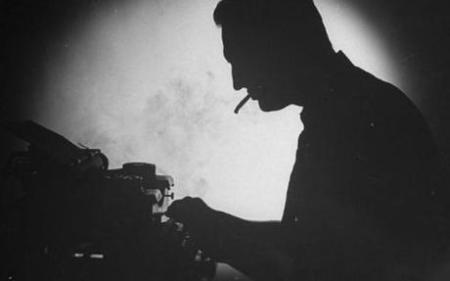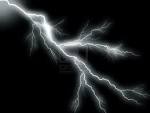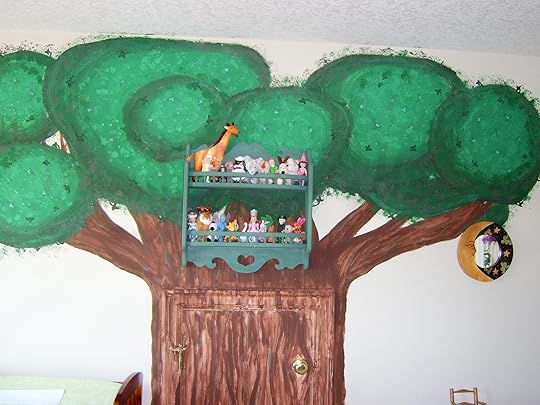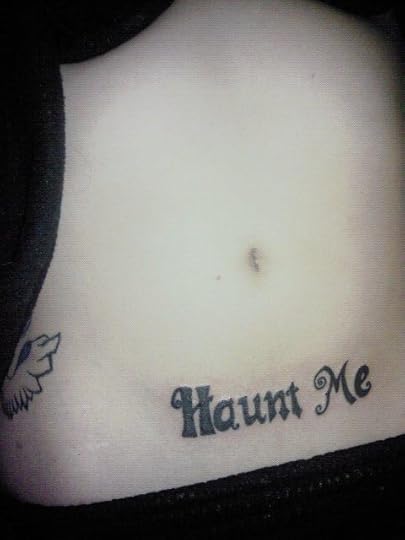Laura Whitcomb's Blog, page 3
April 5, 2013
Your First Words
(first printed in the Willamette Writers newsletter in 2012)
The other day I was cheering up my son with a rerun of “So You Think You Can Dance” when a comment from one of the judges caught my attention. The choreographer critiquing the number loved the first moments, before the two dancers even began dancing—it was the way the female dancer was breathing. That sounds odd, I’m sure, but it was true. The dancer was breathing in character, beginning to paint the story of the piece from the very first note of music.
This, in turn, made me remember the moment right before Josh Krajcik (runner-up in “The X-Factor” season one) began his audition song. I could tell he was going to be a great singer because of the way he brought the microphone up to his face during the intro to the song—he knew what he was doing—he was already part of the song before his first note. And it was thrilling to anticipate how well he would do.
And this, in turn, made me think about the importance of the opening line of a novel. (Forgive me, writers of non-novels, but I’m going to use mostly examples from novels here.) The first impression people have of your book may technically be the cover art, the title, or the premise description on the dust jacket, but the first sentence of chapter one is the real beginning of your story.
Once on a Willamette Writers conference panel, two editors from Tor Books joked about reading manuscripts from the slush pile (which was the size of a small office.) They admitted that they’d read the first line of a novel. If it was bad they’d toss it and move on to the next. Especially if the first line was describing a sunset or sunrise. If the opening line was really bad they’d read it out loud to the other interns who were slushing it, laughing at the best of the worst. They would only read the first page of an unsolicited manuscript if they liked the first sentence.
You need a great opener to impress an agent or an editor (or that intern sitting in the slush pile room.) But that’s okay because you can write one (if you haven’t already.) I love a good first sentence. I stumbled upon a nice one for my novel, A Certain Slant of Light: “Someone was looking at me, a disturbing sensation if you’re dead.” And I’m both a little shy and very proud to say that that line landed me on the British magazine Stylist’s “Best 100 Opening Lines From Books” list.
Here’s the story of how that opener came to be. When I had a rough draft of the book finished, I went to a writing workshop where the instructor told us to open our novels with action rather than a description. I looked at my first chapter and found that nothing happened until the second page when my ghost narrator looked up and saw a teenage boy staring her in the eyes. I moved that moment forward, in front of the description of where she was and what she was doing there. (Thank you, whomever was teaching that workshop.)
There are different kinds of great opening sentences:
Some first lines hook you—you want to read more even if you don’t know why. ”The year that Buttercup was born, the most beautiful woman in the world was a
French scullery maid named Annette.” S. Morgenstern, The Princess Bride. There is a long introduction by William Goldman, but here is the beginning of the actual story. I had to know why this fact was important. I was sucked in instantly.
Some first lines give you the premise of the book in a nutshell, a great way to enroll you in the story immediately. “I was born twice: first, as a baby girl, on a remarkably smogless Detroit day in January 1960; and then again, as a teenage boy, in an emergency room near Petoskey, Michigan in August of 1974.” Jeffrey Eugenides, Middlesex.
Some first lines give a feel for the whole story, hinting at the shape it will take cover to cover. “I who was once, and not so long ago either, known to my friends and relatives and associates as ‘Claudius the Idiot’, or ‘That Claudius’, or ‘Claudius the Stammerer’, or ‘Clau-Clau-Claudius’ or at best as ‘Poor Uncle Claudius’, am now about to write this strange history of my life; starting from my earliest childhood and continuing year by year until I reach the fateful point of change where, some eight years ago, at the age of fifty-one, I suddenly found myself caught in what I may call the ‘golden predicament’ from which I have never since become disentangled.” Robert Graves, (you guessed it) I, Claudius.
Not all character-driven openers, like the Graves quote above, summarize the whole plot. Some merely speak with such vivid voices that the character who is speaking comes alive and calls you to follow them. “’When your mama was the geek, my dreamlets,’ Papa would say, ‘she made the nipping off of noggins such a crystal mystery that the hens themselves yearned toward her, waltzing around her, hypnotized with longing.’” Katherine Dunn, Geek Love.
Some first lines are all about non-character narrators—it’s the author’s voice (rather than a specific character) that’s irresistible. “The sun shone, having no alternative, on nothing new.” Samuel Beckett, Murphy.
Some first lines are simply great even if you can’t explain why.
”Psychics can see the color of time it’s blue.” Ronald Sukenick, Blown Away.
And here are two examples of great first lines from memoirs: ”No road offers more mystery than that first one you mount from the town you were born to, the first time you mount it of your own volition, on a trip funded by your own coffee tin of wrinkled up dollars—bills you’ve saved and scrounged for, worked the all-night switchboard for, missed the Rolling Stones for, sold fragrant pot with smashed flowers going brown inside twist-tie plastic baggies for.” Mary Car, Cherry. “Nobody comes to Minnesota to take their clothes off, at least as far as I know.” Diablo Cody, Candy Girl.
Sidebar ~ If you like first pages of novels, my sister Cynthia has a book recommendation: First Paragraphs by Donald Newlove.
When I got the editorial notes for my latest YA novel, Under the Light (a companion novel to A Certain Slant of Light) I knew I hadn’t found the right first sentence. But my editor (bless her heart) excavated the better first line out of my second page. Déjà vu. I’d heard that most people’s first drafts really start on page two or ten or chapter ten. So if you already have a first draft done, and you haven’t stumbled across the perfect opener, scan forward a bit and be open-minded. You may have already written an award-winning first sentence and simply misplaced it.
Your first line doesn’t have to be weird or fancy–it just needs to be the right one for your story. Because it’s all about great storytelling and your first words are where your story starts.


April 4, 2013
April Give-Away
The winner of the March Give-Away is Ashley of Green Cove Springs, Florida. The April Give-Away will be another advanced reader copy of Under the Light (the companion to A Certain Slant of Light.) Enter by sending me your name and physical address via the “Email Laura Whitcomb” link on my website.
UtL comes out on May 14. Here is another teaser:
I felt drawn to move in a specific direction as if I was in the blackness of outer space and there was only one star to follow. I flew slowly at first, east, between buildings, then over railroad cross bars and along farm fences. I became more confident and started gaining speed, even though I still had no idea what I was looking for.
It’s heading straight for you, I heard some voice inside me whisper.
Instead of scaring me, this only made me want to get there faster. The world rolled forward, the horizon in front of me curling like the crown of an ocean wave. And then, in a rush of magnetic energy, I was swung around and stopped, hovering in midair. Whatever was coming at me had passed by me, or possibly through me. I set my feet down in the grass of an open field where the horizon in every direction was flat. Not a hill or tree to give it shape or size. I had no idea how many miles I’d flown or what state I was in. The heavens came smack down to the earth all around and I could see the faint curve of the planet in the distance.
But the field wasn’t completely empty. About a hundred yards away, I saw a boy levitating three feet off the ground. He came to rest with his sneakers in the grass and walked in my direction as if he’d forgotten he could just fly to me.


March 4, 2013
Your Author’s Questionnaire
Really, it’s all part of being the Dream Client. You want to be the author that your editor and publisher love to work with. And one of the things that thrills them is when an author helps promote her own work. I will always remember what my wonderful agent (Ann Rittenberg) told me when I was faced with my first author’s questionnaire: “I want you to take your time with this.” The AQ is not just some form you fill out—-it’s a way for you to show how much you care about your work, how intriguing and appealing you are as a potential interviewee, and how much you know about your field.
Some questions are self-explanatory. You are asked to provide contact info for your local newspapers and their book reviewers, a list of people who might blurb your book, the names and dates of events in which you’ll participate (writing conferences, signings) and the names of any organizations that might have a special interest in the topic of your book. The important thing here is to give the publisher as much as you can. Don’t just list the one big newspaper in your city. Dig up every publication and bookstore possible. I also got a tip from the editor of the Willamette Writers newsletter, Leona Grieve. There is a web site that provides all the newspaper listings and TV stations you need for your AQ. Go and explore. This will save you time, no doubt about it. http://www.usnpl.com/
In the AQ you are also asked to summarize your novel. I hate this part. I’m terrible at it. But I look up dust jackets and read book reviews of successful novels in my genre and try my hardest. My best tips are not to worry about covering the whole plot and to just give them the premise and a tease, like a good movie preview does.
The real art of filling out the AQ has to do with storytelling. The publicity and sales departments love a good story and they especially love a good story about the making of a good story. You will be asked how your book originated. I start the story of writing my first novel, A Certain Slant of Light, by saying that I was cleaning my apartment and listening to an Anne Rice audio book when I decided that I’d like to write a novel with a similar narrator, someone with an antiquated way of speaking but who is commenting on the contemporary world. But I decided that character didn’t have to be a vampire to be displaced in time– she could be a ghost. When I describe coming up with the idea for my second novel, The Fetch, I set the scene. As I was walking my dog (in a park that reminds me of Russia) I was struck by the idea that there were three very interesting characters involved in the same true story: Grigori Rasputin (the controversial holy man, confidant to the Russian Empress Alexandra), Anastasia Romanov (the youngest daughter of Tsar Nicholas—she was rumored to have survived the assassination of her family) and Alexis Romanov (Ana’s little brother, heir to the throne, and a hemophiliac.) I’m sure you have just as engaging stories about the moment you came up with your own book idea.
You will next be asked why you decided to write the book and what interested you in the project. This might be part of the same answer as above, but maybe not. Maybe you thought of your plot while reading an advice column on a pet lovers website, but perhaps you decided to pursue the project only after thinking of a particularly hilarious scene inspired by witnessing a woman and her puppy waiting in line at the grocery store. Try to think of the details in your book’s creation story that are the most unusual, funny, touching, mysterious, or creepy.
When you are asked if there was any special research or travel involved in the writing of your book, don’t miss this fabulous opportunity to add color. Even if you couldn’t travel to another country or get your hands on rare documents relevant to your plot, give your publisher something to picture. I tell the story of having grown up in a mildly haunted house when discussing my first book and I describe how fun it was to dig up historical details about Hollywood in 1918 with the help of the awesome research librarians at the Lake Oswego public library when talking about my second.
Here are the three questions on the AQ that are often tricky to answer well. 1.) What books are similar to your book and what makes yours different? Your first reaction might be, “What do you mean? There’s no other book out there like mine!” Definitely don’t say that. If you write nonfiction, tell them what else is out there on your topic and then say why your manuscript brings something new to the conversation. If you write novels, your publisher is looking for something along these lines: Similar to Bridget Jones’s Diary and Twilight, but the narrator is only 13 and the vampires are tattoo artist zombies. You get the idea. If at all possible, compare your book to something fairly recent that made lots of money. 2.) What authors’ work is your writing compared to? You can fudge a little here. If no one has actually told you that you write like Dave Barry or Stephen King, you can still list authors that write in a similar tone/voice/style. You can ask your agent for a hint on this one. 3.) What is the market for your book? Do not say that everyone will want to read your book. Not even, every woman in America. You don’t have to be super specific, but give an easy to imagine audience—Oprah book club women, fans of Janet Evanovich, or Louis L’Amour addicts.
Seriously, after all this they will ask you if there’s anything ELSE you’d like to tell them that would help sell your book. Wide open window here to share a touching or funny or inspiring or even spooky story about your project. If you couldn’t fit a cool anecdote in earlier, this is your chance. When your agent is chatting up a foreign scout or when one of your publishers’ sales reps is taking a buyer to lunch, they would love to have extra material to work with, believe me.
My last piece of advice about your Author’s Questionnaire is to write it now. Even if you don’t have a book deal or an agent yet. It will give you a fresh perspective on your manuscript and better prepare you for breaking in. Good luck and see you in the papers.


March 2, 2013
March Give-Away
The winner of the February drawing was Nicole of Edgewater, NJ. And the March Give-Away will be for more of the same, another advanced reader copy of (the companion novel to A Certain Slant of Light) Under the Light which hits book stores on May14th. If you already sent in your name for the other ARC Give-Aways, no need to re-enter, but if you are entering for the first time, send your name and physical address to me via my website link titled “Email Laura Whitcomb.”
And here is another excerpt from Under the Light:
Even if time could be moved like tugging a rope, it would certainly be a ponderous rope that stronger spirits than I found immovable. As I watched that single thread of lightning billow through the water above me like the aurora borealis, I imagined the heavy cord of time stretching away from me in the water like the hard thick rope on a great ship. And I imagined it wavering, softening, then flattening into a ribbon.
If time were as thin and flexible as all that, I should be able to pull it with ease–I could unroll it from its spindle and be back with Jenny. I pictured the last time I had seen her–she’d been sitting on her bed, holding out the back of her hand that I might speak to her. I couldn’t hear her voice, but she might have been asking me a question that a “Y” or an “N” would have answered: Are you with me? Will you help me?
She was far away, but I could feel her lifting her hand to me now, waiting for me to speak. She needed to know: Am I crazy or are you real? Am I alone or will you come to me and help me?


February 12, 2013
a writing contest you might want to explore
The theme is “spark” and the prize is $500.00, publication in an anthology, a lifetime membership at Scribophile, and two writing magazine subscriptions. Only a $10.00 entry fee. Deadline 3/1/13. Learn more at
http://SparkAnthology.org/Contests/One
and good luck!


February 5, 2013
Bad Agent, Good Agent
(reprinted from a 2012 Willamette Writers newsletter)
I did exactly what people warn you not to do – I jumped at the first agent that showed any interest. It was partly because I’d been a writer for a long time before I started looking for an agent (about twenty manuscripts in twenty years) and I felt like I couldn’t waste any more time. Partly because I just didn’t know what to do in that situation. And partly, I suspect, because I feared she would be the only taker. I pitched two novels – a children’s adventure and an adult supernatural drama – to about five agents one-on-one at the 2000 Willamette Writers conference. Not to worry – this bad agent no longer takes pitches at conference and hasn’t for about a decade.
My bad agent said something we all love to hear: “That’s the best story I’ve heard all weekend.” She had me send her both books and called me a week later or so and we signed an agreement. She told me that half her clients sell a book in the first year. This sounds great, doesn’t it? But it could actually mean that she has two clients and one sold a book after eleven months and the other failed to sell anything at all. I should have researched her, but later when I got around to it, her website was confusing. She was part of a group of agents who partnered up and it was impossible to tell who had which clients.
A red flag should have shot up when she said I should only email her, never call on the phone. But what did I know? I was so green. For the first year she sent me an email every three or four months saying we were “still live” at such-and-such publisher or that she just sent my book to so-and-so and that we should keep fingers crossed. During the second year I heard from her less. Finally my writers support group said I should ask for a submission list and I did. My bad agent hedged and I kept asking every few weeks. Finally, after we’d been together about two years, I asked to see a submission list and also my rejection letters/emails so I could learn from them what to do differently with my writing. A week or so later I got a list with three places one book had gone and one place another had been sent. All of them AFTER the date I asked to see my rejection letters.
I called and the recording said, “If you are a client, hang up and email me.” I emailed and an assistant replied. I said there must be other places my material had been submitted because during the first year she told me more than once that my books were here or there. The assistant answered that if the places my books were sent hadn’t responded, then they had no record of where they’d been already. Okay, I was green, but even I knew this was crazy. I wrote my bad agent a letter saying I was leaving and in thirty days it was legal.
Now I had written a new manuscript (the YA novel I broke in with, A Certain Slant of Light) and I knew that if I wanted a better agent I’d have to wise up. I didn’t want to make the same mistakes twice. First I read Donald Maass’s book The Career Novelist to figure out what kind of agent I wanted. Some people insist an agent should be New York based and others don’t care. Some agents are trend setters who grab and sell what’s currently hot and are less interested in the longevity of each writer’s career. Others are career-builders who want to find each writer a good home at the right publishing house. Some agencies are small so you get more attention from your agent but they may not have a lot of clout. Others are huge with plenty of clout but might have so many clients you could get lost in the crowd. I decided I wanted an agent who was based in New York (I liked the idea that my agent could go to lunch with NY editors) and medium-sized with an excellent track record (clout and less chance of getting lost) and a career-builder.
Next I read Jeff Herman’s book on literary agents and editors. I liked the Herman book because it not only told me which genres each agent was looking for, but all kinds of extras: their hobbies, pet peeves, backgrounds, and so on. I listed every possible agent for me on 3 x 5 cards and then stacked them in order of preference with my faves at the top of the stack—NY based, medium size, career-builders first.
As I composed my query letter I used some advice that I believe I heard from Noah Lukeman during a workshop at conference a few years before. I made the letter no longer than one page, I didn’t say anything about myself (since nothing about me related specifically to my writing project) except that I had won a few writing awards, and in my one or two paragraph description of my novel I made it clear who the story was about, where it took place (time period and location,) and the main conflict in the plot. Noah said that if you can’t tell the reader those three things in one paragraph, there’s probably something wrong with your story, not just your query letter.
I wrote a good query, let someone else read it (my writer sister,) and rewrote it. Then I sent it to the top ten cards on my stack all at the same time. Only one of them wanted to read the manuscript, but that didn’t matter, because that agent was Ann Rittenberg and she signed me and she’s a fabulous agent.
Before I agreed to become Ann’s client, we chatted by phone. I had researched her in the Herman book and on the web so I already knew certain things such as the fact that she represented Dennis Lehane – obviously she was a successful agent. Now I asked her some other questions to make sure she was not like the bad agent. And I liked the answers I got. She said she would always give me copies of the rejection letters my books received. She said I could call her whenever I wanted to. And when I asked her what she loved about my book, it was the same kinds of things I loved about it myself. I also found I was comfortable talking to her, a good sign that we would be able to communicate well.
Within a year Ann sold my book to Houghton Mifflin and landed me two foreign sales and a movie option. Around the same time a warning went out to all members of the Authors Guild of America about my bad agent (apparently she was not paying out royalties to her clients on time) and I was so relieved that I had found a career partner in Ann. Thank you, lucky stars!
If you haven’t agented up already, start researching your dream agent right now and when they call and want to represent you, have some questions ready. It could make all the difference.


February 1, 2013
February Give-Away
The winners of the December/January Give-Away are Chantel of South Africa and Kayla or Salem, Oregon. The February drawing will also be an advanced reader copy of Under the Light. I will keep all the names that are already in the drawing pool and add any new entries that come in. (Write me with your physical address using the “Email Laura Whitcomb” link on my website at www.laurawhitcomb.com.)
A short excerpt from Under the Light (coming to bookstores 5/14/13):
I didn’t know I had only a handful of minutes. Or that the cellar was a mistake. That strange feeling in my gut, that something wonderful might be just around the corner, flared back up inside me as we stepped out the kitchen door and into the wind. A thrill shot through me. God made the storm just as God made the rainbow and the calm that comes after the storm. God made the earth and all that dwelled there and also Heaven and Hell and all the angels and devils that dwell there, too. So there is God in everything, in the wind and the rain and the burning white of lightning.
Maybe if I could have held onto that thought, I might have left that cellar for Heaven instead of hell. But then, I never would have found James. So maybe God truly was in the rising water and the darkness and the terror. His eye, the unblinking funnel of cloud at the center of my panic.


January 3, 2013
January Give-Away
The winner of the November Give Away, an advance reader copy of Under the Light (a sequel to A Certain Slat of Light) which will be published in mid-May 2013, is Gita of Vienna, Austria. Since the holiday season made life extra busy in December, I will make this month’s Give-Away into a December/January Give-Away and do a drawing for TWO copies (ARCs) of Under the Light. I will also keep all the non-winners from November in the drawing pool.
If you’d be interested in an advanced reader copy of my newest novel (and you did not enter in November) email me your physical address via the “Email Laura Whitcomb” link on my website.
In honor of the upcoming launch, here is a short excerpt:
I knew I couldn’t take my body with me and I knew I couldn’t stay, so without saying good-bye, I abandoned my life. My spirit slid up the wall of my house, rising slow as a raindrop in reverse and glided over the white rocks on our roof. I could see every rotting leaf there as I swam the air over my home and then up high into our neighbor’s tree. Like Wendy from Peter Pan, I flew through the branches, beyond the leaves, and into the sky.


January 2, 2013
Acts of Faith
In recent blog posts I talked about morning magic (the power of daily prayers and meditations) and visioning (the power of picturing the things you want with the clarity and intensity that bring those things to you.) Now I’m going to talk about the most important part of this kind of work. Acting as if you already have what you want aligns the universe to your vision. If you pray for or meditate on having a horse, if you envision owning that horse, now you must build a stable even if you don’t know where you are going to get a horse.
When I had landed my agent but did not have my first book deal yet, I decided to show the universe that I knew I’d be needing a headshot for my dust jacket. I googled local photographers and chose one, called him up, asked for a sitting for a publicity headshot because I was a novelist. He asked when my book was coming out – when did I need the photo? I said I didn’t know because I didn’t have a book deal yet. He humored me and asked when I wanted to come in. It was January. I said, “How about May?” Turns out he had plenty of time in May. As it happened my novel sold in April – when I came for my appointment, and he asked how my search for a publisher was going, I had fun telling him about my book deal and seeing the surprise on his face.
Here are some other examples of acts of faith that did the trick: When my sister and I were living in a motel waiting to move into the house we wanted, the bankers kept telling her that she should choose another place – that house was too much for us. But Cynthia knew we were going to get the house she fell in love with at first sight. To get that idea across to the universe, she had address stamps made for herself and me with our names and the address of our future home. And it worked.
Before I adopted my baby, I gathered toys, furniture, clothes, and books. I recarpeted the nursery and had a tree painted on the wall. I know there were other things afoot in the universe helping Binny and me find each other, but when I took action, a demonstration of not just hoping but of knowing, it tilted the scales toward my dream.
That doesn’t mean the road to motherhood was easy – I had two failed adoption matches before I met my son, but when I was waiting for the third match to succeed or fall apart, I wrote a draft of my child’s email birth announcement. I imagined how I’d feel and was overflowing with joy as I wrote the text, leaving blanks for birth weight, length, date, time of day. And I used that very document when Binny was placed with me a couple of weeks later. Feeling the happiness in advance is part of the act of faith recipe.
In The Secret, by Rhonda Byrne, she and the other contributors tell people who want to fall in love to make room in their lives for that soul mate by clearing out drawers and closet space for them. They also warn us that if we are asking the universe for wealth, we need to act rich. Don’t keep saying out loud that you can’t afford things or that you are broke. Instead do something a rich person would do whether that’s buying the expensive cup of coffee or window shopping for a new car.
And as writers we need to be reminded to perform acts of faith about our careers. Saying, “I’ll try to be a writer for six months and if that doesn’t work I’ll quit.” would be like telling the universe, “I will fail and it’ll take about six months.” Instead of planning to fail, plan to write forever. And don’t just meditate on your success and visualize a fabulous career, take some action – get your publicity photo taken, draft the invite to your celebration bash, have cards made: (your name here) ~ writer. And feel the thrill of it now, in advance.
Another example of a small act of faith, something you could do today, is the purchasing of a signing pen. When I didn’t even have an agent yet, I bought a funny ball point pen that was covered with faux gems and said aloud, as I put it in my pencil jar, “Someday I’ll sign my novels with this pen.” And I felt a little surge of joy. A couple of years later as I was rushing out of the house to go to a signing at a book expo, I grabbed a few pens from the jar and threw them in my bag. While I sat at my booth signing copies of my novel I noticed I was holding that pen. This stuff works – I’m just sayin’.
Another example: I got a new purse and filled it with pens for signing books, tissues, gum, all the kinds of things I’d need on a trip. And then I left this purse sitting out in my apartment on the coffee table. I vowed that I would not put this purse away until my publisher sent me somewhere on their dime to do publicity for my book. People would come over to my place and say, “What’s that?” I’d say, “It’s my traveling purse.” Within the year Houghton Mifflin flew me out to New York for BEA to do a signing and attend a Houghton Mifflin party. I got to meet my editor, publicist, and agent in person. It was a wonderful trip. And I felt some of that wonder in advance every time I saw that purse waiting on the coffee table.
So, now, go forth and act on faith! If you can’t decide what action to take, follow your feelings. If the idea of a certain act of faith makes you feel bad (nervous or stressed or annoyed) choose something else. Choose the idea that makes you smile on the inside. Your pleasure is what gives the act its potency.


December 31, 2012
Tale of a Tattoo
When Jacki was 14 she read A Certain Slant of Light for the first time and was hooked from the opening line. She would sneak it into class, hiding it behind her text book. She cherished the story for years, finding it unforgettable. Something hit home for Jacki when she read the descriptions of loneliness in the novel. The experience of being a ghost, invisible to the world, seemed to her to mirror the feelings of a troubled teenager. And the peculiar love story, displaced in time and space, captured her heart. “It’s a story that I will love my whole life,” says Jacki. “A book I’ll pass down to my children.” She loves tattoos, and the one she had done for A Certain Slant of Light was not her first. “I have hearts on my wrists,” says Jacki. “One pointing towards me representing the love I receive and the other pointing away from me for the love I give.”
“Haunt Me,” inked across her stomach, is a quote from the scene in which Helen first comes to live with James.
Jacki says, “Between losing close friends and my mom, it seems as though death has surrounded me. I strongly believe in life after death.“ Jacki, now 21, wants to become an embalmer or funeral director and to write her own stories that she hopes will capture people’s imaginations the way hers was caught by A Certain Slant of Light.


















